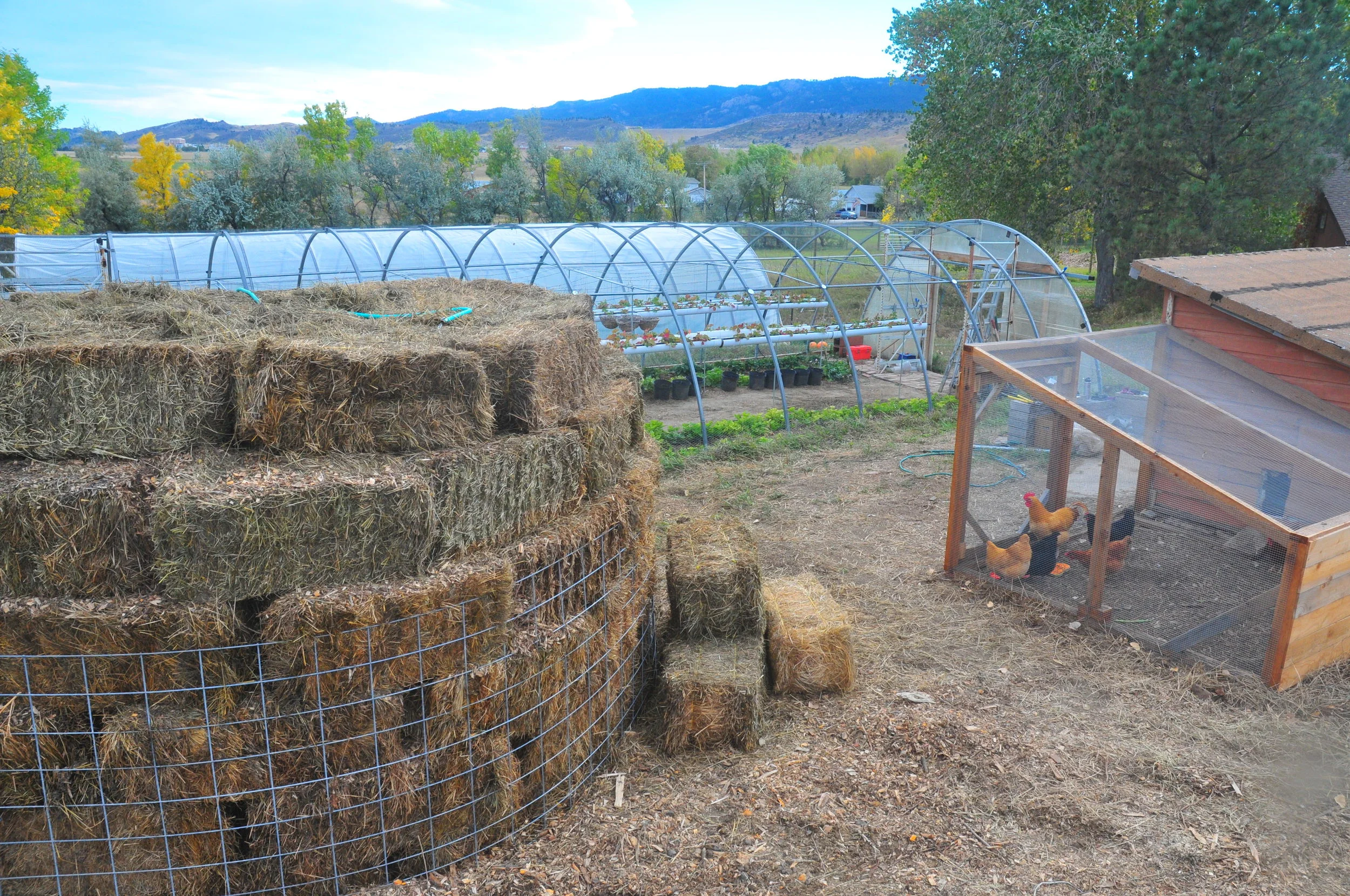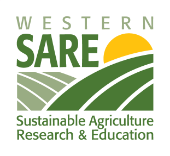We have conducted agricultural research from 2013-2018 and provide results of that work below.
In 2015, we were awarded a 3-year Western Sustainable Agriculture Research and Educational (Western SARE) grant to test the feasibility of using a compost hot water heater (pictured above and insulated with hay bales) for heating large high tunnels. At our farm/orchard west of town, we will attempt to heat our 1,000 square foot high tunnel, using 50 cubic yards of wood chips, manure and sawdust (donated from a local wood turner, Steve Germaine). When functioning properly, a compost heater will obtain temperatures 115-140°F for 18-24 months. If you are interested in this research, please consider signing the email list and read the reports below. We will be producing a final report in late 2018. If you are experimenting with a compost heater, please contact us and let us know how it is going. We would love to hear from you.
Our first progress report (January 2016) is available as a pdf here.
Our second progress report (January 2017) is available as a pdf here.
Our third progress report (January 2018) is available as a pdf here.
Our fourth and final progress report (November 2018) details the quality of the compost from the compost heater and is available as a pdf here.
In 2013, we were awarded a 2-year Grower Research and Education Grant funded by the USDA Specialty Crop Block Grant in partnership with the Colorado Department of Agriculture administered by Colorado State University. We conducted a two year evaluation of the economic and logistically feasibility of increasing overall high tunnel production yields of day-neutral strawberries by adding a second level of growing such that berries were grown both in the ground and above ground. The high tunnel were this work was conducted is seen in the above photograph in the background. This research is completed and a report is available here.


